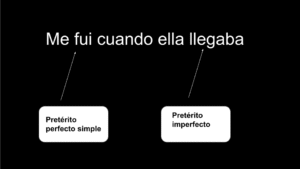Between the Two Versions, You Choose

Known in Cuba as fruta bomba, it is called lechosa in Venezuela and papayaMexico and other countries. And what a little word this last one is. It makes any Cuban blushwould make any Cuban man or woman smile when they hear it, without daring to repeat it in public. So then, ‘fruta bomba’ or papaya?
Children can be terrible, even in kindergarten. And there went one of them, a little Cuban boy for sure, when he saw a little mammalian shark coming out of his mother’s body in a video projected in the classroom. The giggles didn’t take long to start, and the word papaya resonated from over there. It turns out that even the little Mexican kids, to whom the word papaya doesn’t mean anything malicious, were laughing complicitly, referring in Spanish to the well-known fruit. It was one of those moments of anger for the teacher, who had to remind them that we can be different, speak differently, and there’s nothing wrong with that. Period.
The Ghost of the Fruit Bomb or Papaya Appears Again
The little ghost of the fruit bomb or papaya appeared again. Another day, while the children were debating a very serious topic in front of the family members who had come to observe how they were developing in oral expression, they suddenly changed the conversation to the topic of fruits. “And why does the apple rot?”, one asked. A girl answered that it could happen after many days of being picked and worms could even appear.
“I don’t like apples, but I do like”dragon fruit, clarified another, who was joined by the little Cuban boy saying that his favorite fruit was the fruit bomb. “Fruit bomb, what’s that?” two or three asked at the same time, and even some family members looked at me intrigued. Oh boy, that word again. There I had to explain again that in Cuba, papaya is called fruit bomb, and the little Cuban boy: “And why don’t they say papaya in Cuba?” Well, because we’re all different and so is our vocabulary, and let’s get back to what we were talking about, which wasn’t precisely about fruits, I had to clarify. Okay, let’s continue. “How can we show that we’re responsible?” “I’m responsible if I help my friends in Math…” and the discussion was steered back on track, now on safer ground for me.
 When I arrived in the United States, my first priority was to learn English, and one of my initial curiosities, among others, was how to say the Spanish “se” in this language I was acquiring. I asked my English as a Second Language (ESL) teacher, and she calmly replied: “they”.
When I arrived in the United States, my first priority was to learn English, and one of my initial curiosities, among others, was how to say the Spanish “se” in this language I was acquiring. I asked my English as a Second Language (ESL) teacher, and she calmly replied: “they”.
 The imperfect tense in Spanish can be complicated for English speakers, as it doesn’t have a perfect equivalent in English. While English uses “used to” or “was/were + verb -ing” to express past actions, Spanish employs a specific tense with unique conjugations.
The imperfect tense in Spanish can be complicated for English speakers, as it doesn’t have a perfect equivalent in English. While English uses “used to” or “was/were + verb -ing” to express past actions, Spanish employs a specific tense with unique conjugations.  Knowing the gender of nouns in Spanish is complicated for English speakers. I remember a friend who told me that when she started studying Spanish at college, she decided not to continue with this subject because she would never understand how a pencil could be masculine and a pen feminine if both objects were for writing and had more or less the same elongated shape. Good reasoning, but as I always tell my students, languages are not an exact science where two plus two equals four.
Knowing the gender of nouns in Spanish is complicated for English speakers. I remember a friend who told me that when she started studying Spanish at college, she decided not to continue with this subject because she would never understand how a pencil could be masculine and a pen feminine if both objects were for writing and had more or less the same elongated shape. Good reasoning, but as I always tell my students, languages are not an exact science where two plus two equals four. Introduction to the subjunctive mood
Introduction to the subjunctive mood